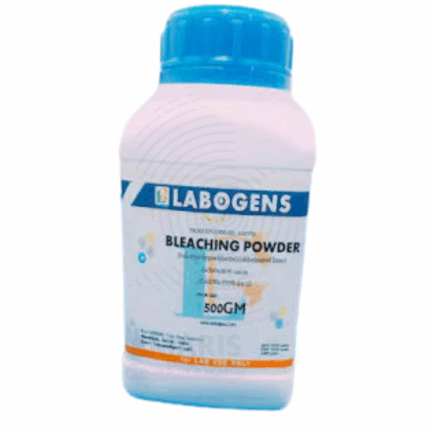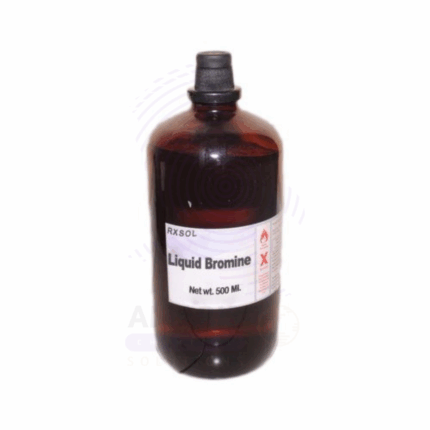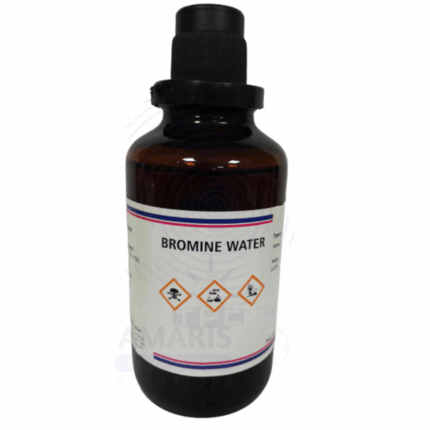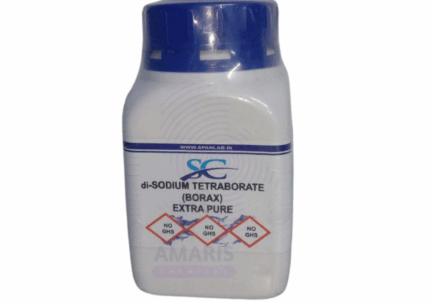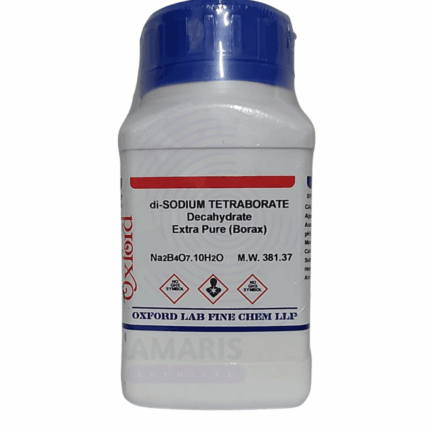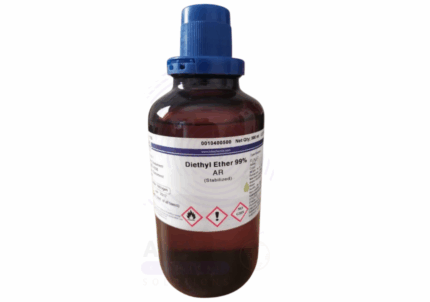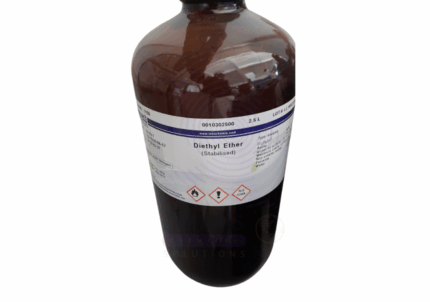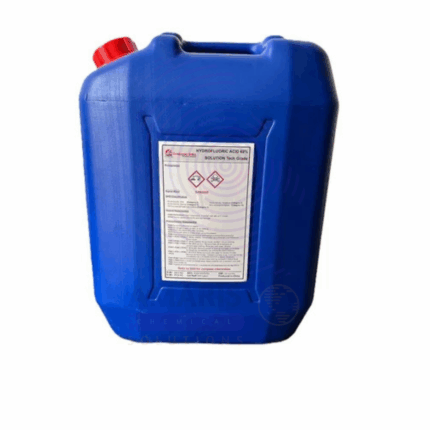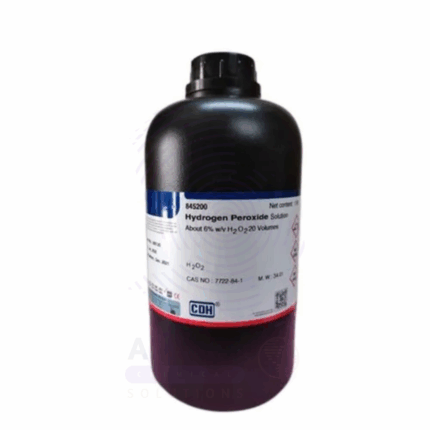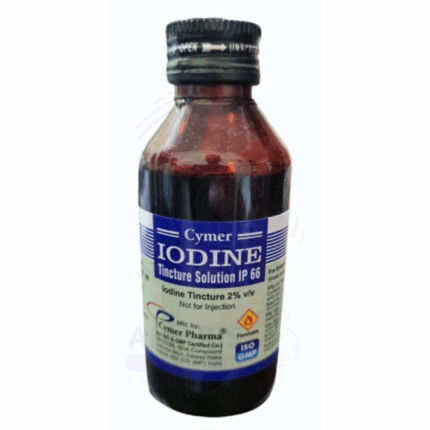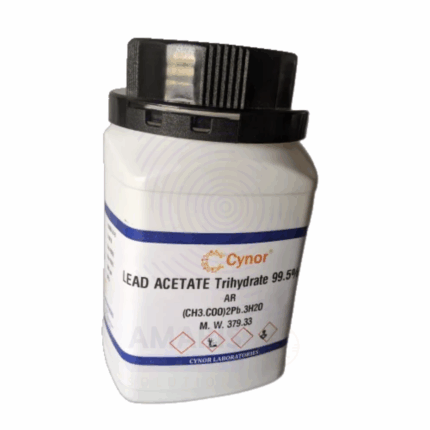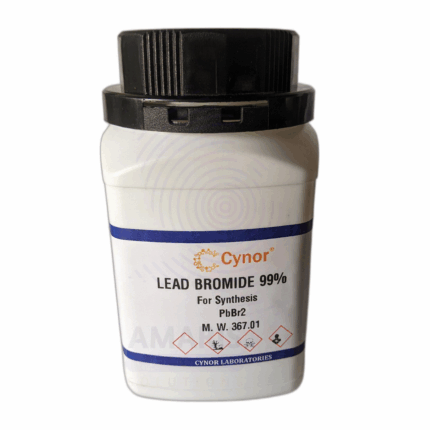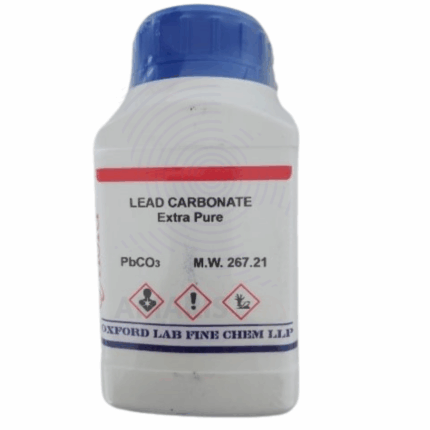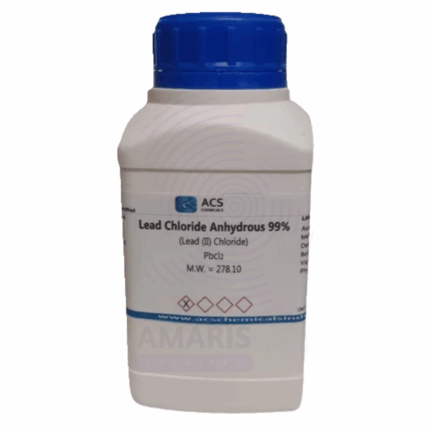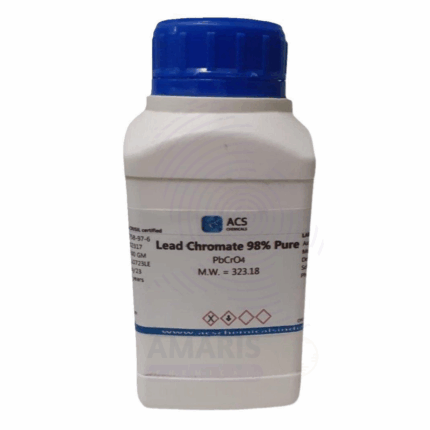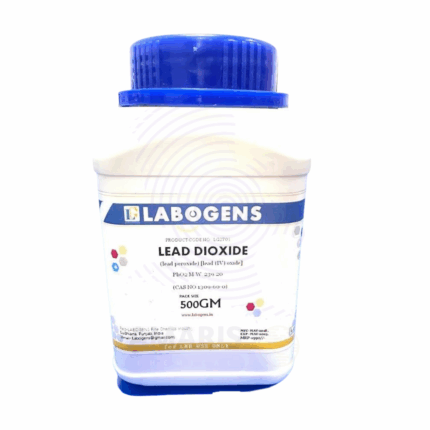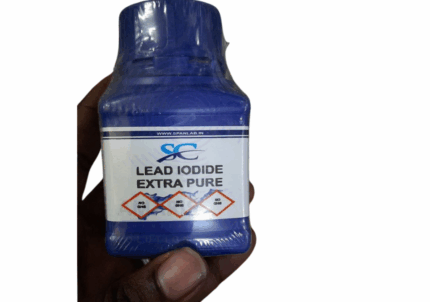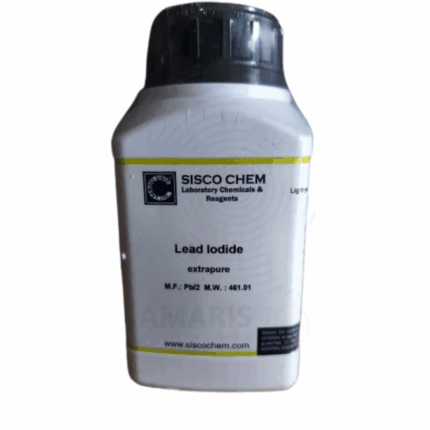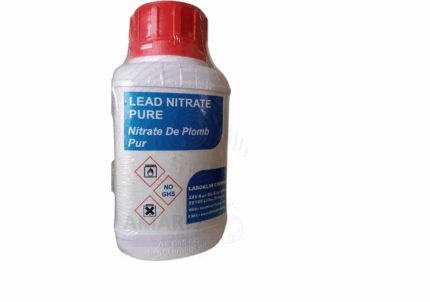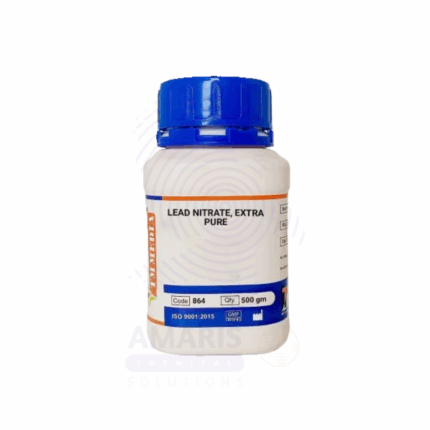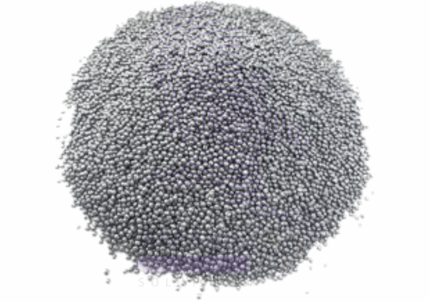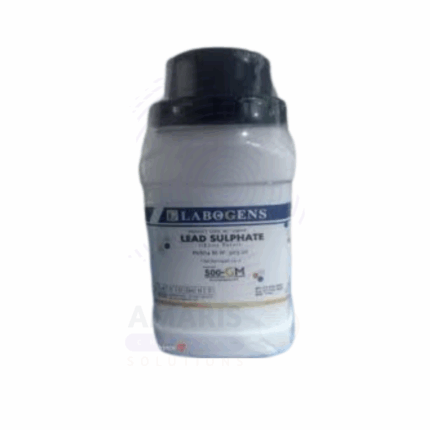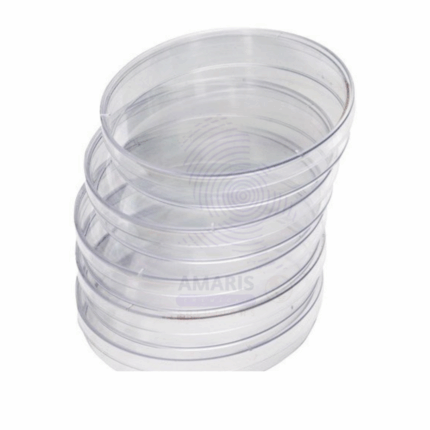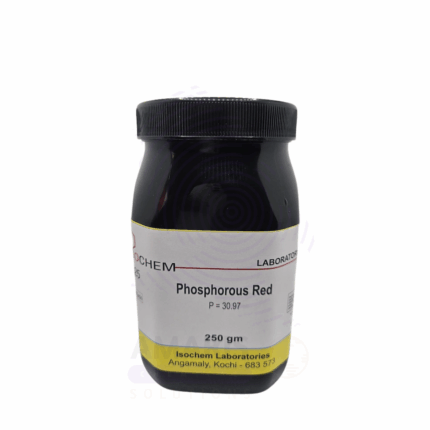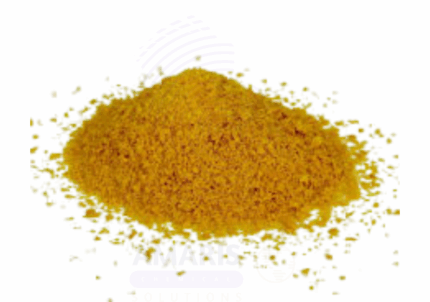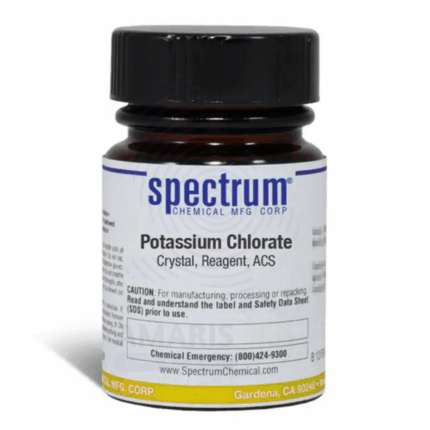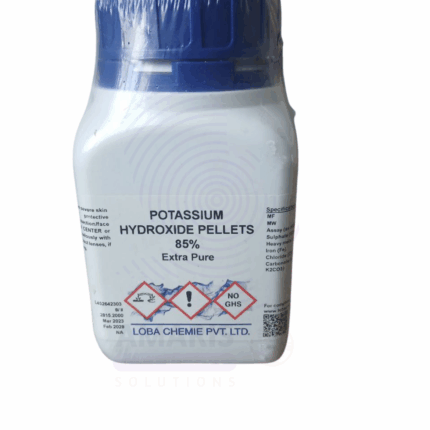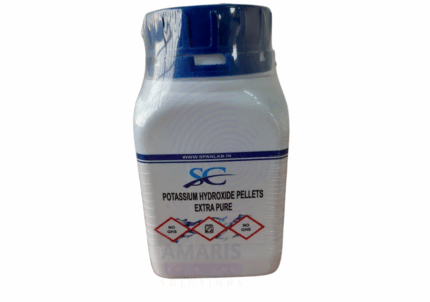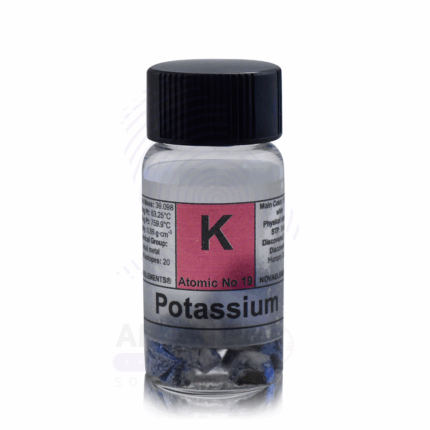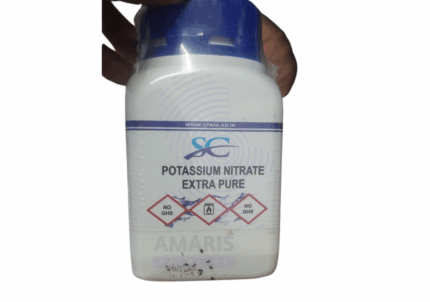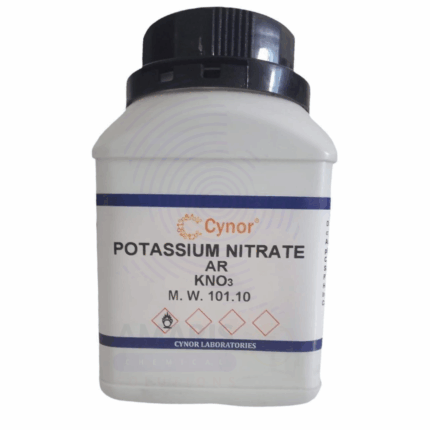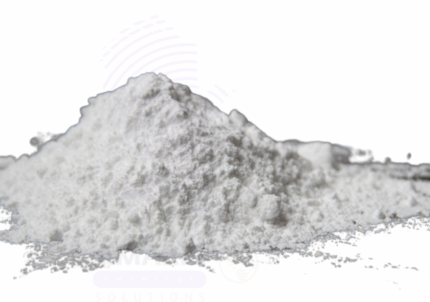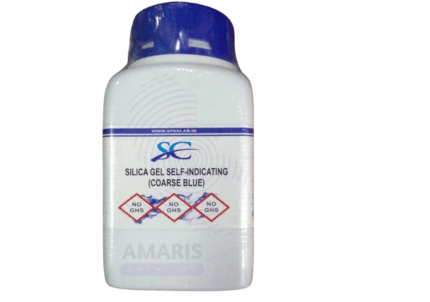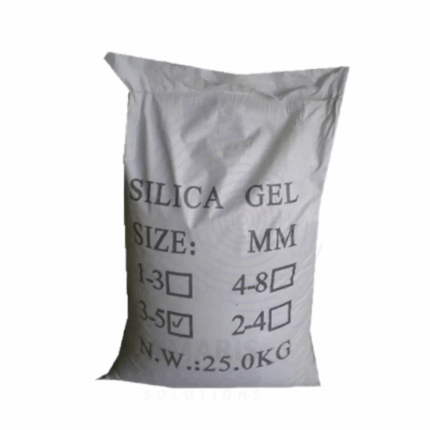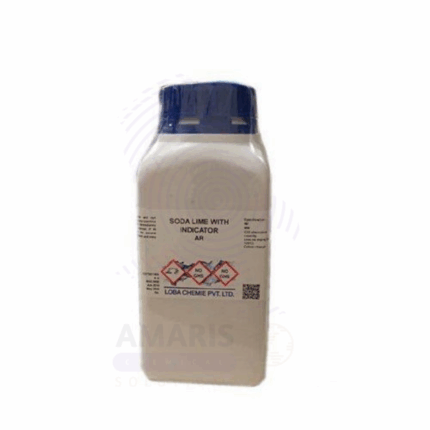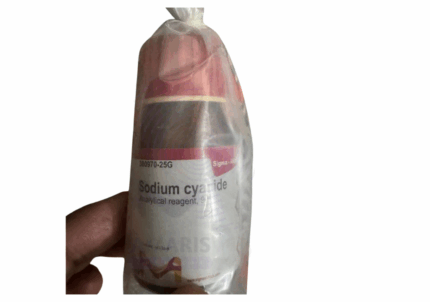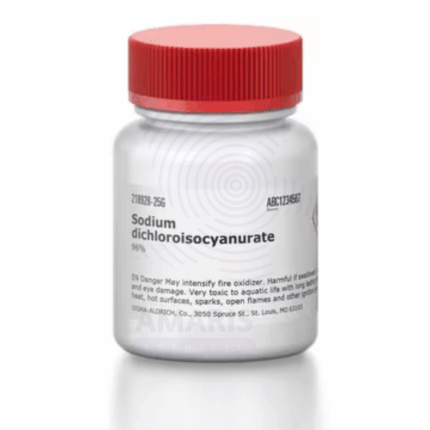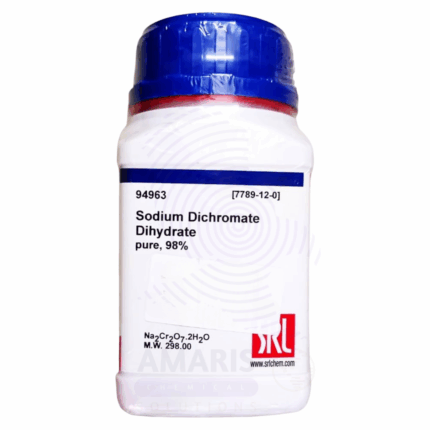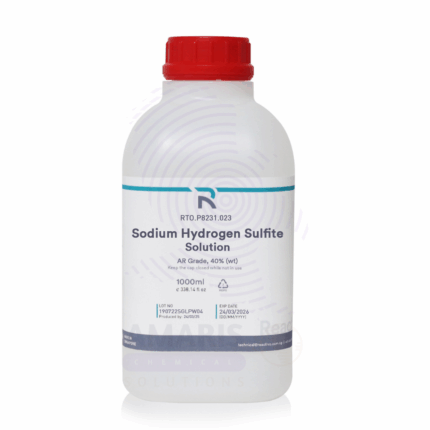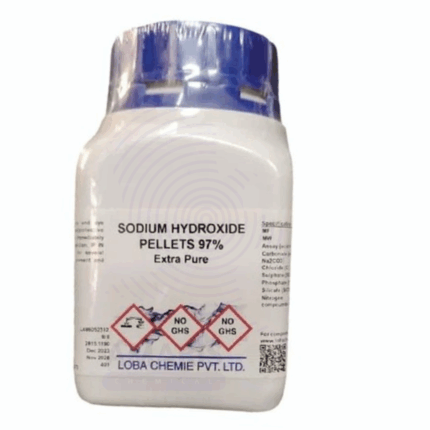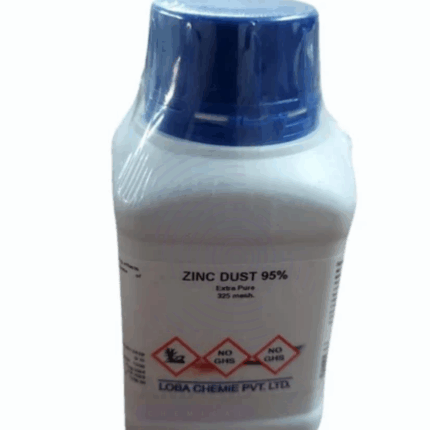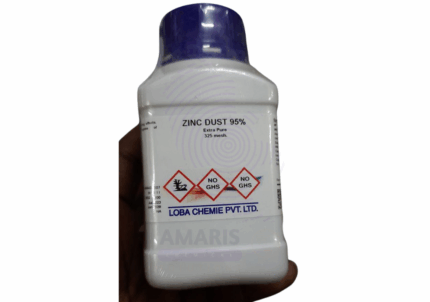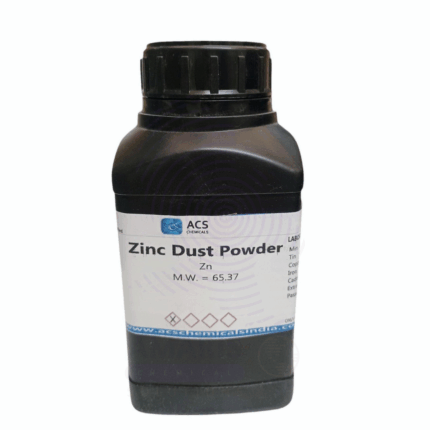
Laboratory safety chemicals are specialized substances used to prevent accidents, control hazards, and manage emergencies in labs. They help maintain a safe working environment by handling spills, fires, chemical exposures, and waste disposal
Bleaching Powder Extra Pure
Bleaching Powder Extra Pure is a high-purity, white to slightly yellowish powder composed primarily of calcium hypochlorite, widely used in laboratory settings for disinfection, oxidation, and chemical analysis. It serves as a strong oxidizing agent and is employed in qualitative tests for halogens, water treatment simulations, and preparation of chlorine-based reagents. In microbiology and environmental science labs, it is often used to sterilize surfaces and decontaminate samples. The extra pure grade ensures high available chlorine content and minimal impurities, making it reliable for precision applications. It should be stored in a cool, dry place, in airtight containers, away from moisture, organic substances, and acids to maintain its stability and reactivity.
Bromine Liquid Extra Pure
Bromine Liquid Extra Pure is a high-purity, reddish-brown volatile liquid used in advanced laboratory research involving halogenation reactions, redox studies, and analytical chemistry. It serves as a powerful oxidizing and brominating agent in organic synthesis, facilitating the substitution of hydrogen atoms with bromine in a wide range of compounds. In inorganic analysis, it is employed in the preparation of bromide salts and in the determination of unsaturation in oils and fats. Due to its high reactivity and corrosiveness, it is handled under strict safety protocols in fume hoods with appropriate protective equipment. The extra pure grade ensures minimal contamination and consistent reactivity, making it suitable for precise and high-sensitivity applications. It must be stored in tightly sealed, corrosion-resistant containers, away from heat, light, and incompatible materials such as organic solvents and reducing agents.
Bromine Water Extra Pure
Bromine Water Extra Pure is a highly purified aqueous solution of bromine, commonly used in laboratory settings for qualitative analysis, halogenation reactions, and redox studies. It acts as a powerful oxidizing and electrophilic brominating agent, making it ideal for detecting unsaturation in organic compounds—such as alkenes and alkynes—through decolorization tests. In inorganic chemistry, it is utilized for oxidation of specific ions and elements in solution. The extra pure grade ensures low contamination and consistent bromine concentration, crucial for reproducible analytical results. It should be stored in amber, airtight containers in a cool, well-ventilated area, and handled with proper protective equipment due to its corrosive and volatile nature.
Di-sodium Tetraborate Borax Extra Pure
Di-sodium Tetraborate Borax Extra Pure is a high-purity boron compound widely used in laboratory applications for its buffering, emulsifying, and fluxing properties. In analytical chemistry, it serves as a reagent in qualitative and quantitative analysis, particularly in flame tests and as a flux in the preparation of glass beads for spectroscopy. Its buffering capacity is valuable in maintaining pH stability in various solutions, while its detergent-like action supports cleaning and sample preparation. This extra pure grade ensures minimal contaminants, making it ideal for precision work in research, teaching, and industrial laboratories. Store in a cool, dry environment in a well-sealed container.
Diethyl Ether Extra Pure
Diethyl Ether Extra Pure is a volatile, highly flammable solvent widely used in laboratory settings for extractions, recrystallization, and as a reaction medium in organic synthesis. Its low boiling point and high volatility make it ideal for evaporative processes and rapid solvent removal. In analytical labs, it is commonly employed for liquid-liquid extraction due to its excellent miscibility with a variety of organic compounds. This extra pure grade ensures minimal impurities, making it suitable for sensitive chemical reactions and research applications. Proper storage in a tightly sealed, cool, and well-ventilated area is essential to maintain stability and safety.
Hydrofluoric Acid
Hydrofluoric Acid is a highly corrosive aqueous solution of hydrogen fluoride gas dissolved in water. It is a colorless to pale yellow fuming liquid with a strong pungent odor. Unlike other mineral acids, HF is a weak acid chemically but uniquely reactive due to its ability to dissolve silica and glass, and penetrate tissues deeply. This makes it invaluable in numerous industrial, laboratory, and specialized applications but also highly hazardous.
Hydrogen Peroxide Extra Pure
Hydrogen Peroxide Extra Pure is a clear, colorless liquid widely used as a strong oxidizing agent in laboratory and industrial settings. This high-purity grade ensures minimal contamination, making it ideal for analytical chemistry, disinfection, bleaching, and redox reactions. In research labs, it serves as a reliable reagent for oxidation processes and sterilization. Its extra pure formulation enhances consistency and accuracy in sensitive procedures. Due to its reactive and potentially unstable nature, it should be stored in cool, dark conditions in vented containers and handled with appropriate protective equipment.
Iodine Tincture Extra Pure
Iodine Tincture Extra Pure is a high-quality antiseptic solution composed of elemental iodine dissolved in a mixture of alcohol and potassium iodide. It is widely used for disinfecting wounds, sterilizing skin before medical procedures, and as a laboratory reagent in various analytical and microbiological applications. Its fast-acting antimicrobial properties make it effective against bacteria, viruses, and fungi. In laboratory settings, it serves as a reliable indicator and staining agent. Due to its volatility and staining nature, the tincture should be handled with care and stored in tightly closed, amber-colored bottles to preserve stability and prevent degradation.
Lead Chloride Anhydrous Extra Pure
Lead Chloride Anhydrous Extra Pure is a white crystalline compound with the chemical formula PbCl₂, offered in its high-purity, moisture-free form for specialized applications. It is only sparingly soluble in cold water but dissolves more readily in hot water, forming a clear solution upon heating. This compound is used in laboratory synthesis, particularly in the preparation of other lead-based reagents, and plays a role in ceramic glazing, pigment production, and electrochemical processes. In research, it is also employed in photographic materials, optical devices, and inorganic analysis. Due to the toxic nature of lead compounds, strict safety protocols are necessary during storage and handling.
Lead Dioxide Extra Pure
Lead Dioxide Extra Pure is a dark brown or black crystalline powder with the chemical formula PbO₂, recognized for its strong oxidizing properties and high purity suitable for laboratory-grade applications. This compound is primarily used in electrochemical experiments, oxidation reactions, and battery research, especially in the development and maintenance of lead-acid batteries where it functions as the active material on the positive plate. In analytical chemistry, it is employed as an oxidizing agent and for synthesizing other lead compounds. Its stability and performance under controlled conditions make it valuable for advanced scientific research and industrial formulation trials. Due to its toxic and environmentally hazardous nature, strict safety protocols are necessary during handling and disposal.
Lead Iodide Extra Pure
Lead Iodide Extra Pure is a bright yellow crystalline compound with the formula PbI₂, known for its striking color and high chemical purity, making it ideal for laboratory and research use. It is commonly used in materials science, especially in the fabrication of perovskite solar cells and semiconductors, due to its optical properties and ability to form thin films. In academic research, it plays a role in crystal growth experiments, and its distinct color change upon heating serves as a classic demonstration in chemistry education. Owing to its lead content, appropriate handling precautions and environmental safeguards are essential when working with this compound.
PETRI DISH PLASTIC
Petri Dish Plastic is a shallow, cylindrical laboratory container made from clear, chemically resistant plastic materials such as polystyrene or polypropylene. Designed for single-use or limited reuse, plastic Petri dishes provide a convenient and cost-effective alternative to glass, especially in applications where sterility and disposability are priorities. These dishes are commonly used in microbiology, cell
Phosphorous Red Extra Pure
Phosphorous Red Extra Pure is a high-purity allotrope of elemental phosphorus, presented as a dark red to violet amorphous powder. Unlike its white counterpart, red phosphorus is significantly more stable and less reactive at room temperature, making it safer to handle under controlled conditions. It is insoluble in water and most organic solvents and must be stored under inert conditions due to its flammability in finely divided form.
This grade of red phosphorus is commonly used in laboratories for chemical synthesis, pyrotechnics, match production, and flame retardant formulations. In education and research, it is employed in demonstrations of allotropy and in preparing organophosphorus compounds.
Poly Aluminium Chloride Extra Pure
Poly Aluminium Chloride Extra Pure is a high-efficiency inorganic coagulant widely used in water treatment, paper manufacturing, and various industrial processes. In its extra pure grade, PAC is characterized by a high degree of purity, minimal impurities, and consistent performance, making it suitable for critical applications requiring stringent quality control.
PAC works by neutralizing the negative charges on suspended particles, allowing them to coagulate and settle quickly. It is highly effective in clarifying drinking water, treating industrial and municipal wastewater, and removing heavy metals, organic matter, and pathogens. Additionally, in the paper industry, PAC improves paper strength and retention of fillers.
This compound should be handled with appropriate PPE, including gloves and eye protection, and stored in a cool, dry, and well-ventilated area, away from reactive substances. PAC is non-flammable but may cause irritation on contact with skin or eyes.
Potassium Chlorate Extra Pure
Potassium Chlorate Extra Pure is a high-purity, crystalline compound with the chemical formula KClO₃. It appears as a white, odorless solid and is well known for its strong oxidizing properties. In its Extra Pure form, it meets analytical-grade standards, making it suitable for sensitive laboratory and controlled industrial applications.
This chemical is extensively used in analytical chemistry, especially in oxygen production experiments and thermal decomposition studies, as it decomposes to release oxygen when heated. It is also used as a reagent in pyrotechnics, match compositions, and explosive formulations, where a powerful oxidizer is needed. In botanical tissue culture, potassium chlorate is sometimes used to induce flowering in certain plant species.
Due to its reactive and potentially explosive nature, Potassium Chlorate must be handled with extreme caution. It should be stored away from combustible materials, acids, and heat sources, in a cool, dry, well-ventilated area, in tightly sealed containers. Personal protective equipment such as gloves, goggles, and lab coats must be worn during handling, and it should never be ground or mixed with sulfur, phosphorus, or organic matter unless under strictly controlled conditions.
Potassium Hydroxide Pellets Extra Pure
Potassium Hydroxide Pellets Extra Pure are solid, white, hygroscopic pellets known for their strong alkalinity and high reactivity. This compound is widely used in laboratories for pH adjustment, titrations, and chemical synthesis. In industrial settings, it plays a key role in soap and detergent manufacturing, biodiesel production, and water treatment processes. Its ability to absorb moisture and carbon dioxide from the air requires careful storage in airtight containers. With exceptional purity and consistent performance, it is a critical reagent in both academic and industrial chemistry environments.
Potassium Nitrate Extra Pure
Potassium Nitrate Extra Pure is a high-purity, crystalline chemical compound widely used in laboratories, pharmaceuticals, and food-grade applications. It serves as a strong oxidizing agent, commonly employed in analytical chemistry, fertilizer formulation, and pyrotechnics. In pharmaceutical settings, it may be used in toothpaste for sensitive teeth, while in food processing, it can function as a preservative under strict regulatory control. Its extra pure grade ensures low levels of impurities, making it ideal for precision-dependent procedures. The compound should be stored in a cool, dry place away from incompatible substances to maintain its stability and reactivity.
Potassium Permanganate Extra Pure
Potassium Permanganate Extra Pure is a powerful oxidizing agent recognized for its deep purple crystals and wide range of applications. In laboratory settings, it is frequently used in redox titrations, organic synthesis, and as a disinfectant due to its strong antiseptic properties. This compound is also valued in water treatment for removing iron, hydrogen sulfide, and organic impurities. Its extra pure grade guarantees high chemical integrity, making it ideal for analytical procedures, research work, and high-precision industrial uses where purity is critical.
Powder Sodium Mono Fluoro Phosphate Extra Pure
Powder Sodium Mono Fluoro Phosphate Extra Pure is a fine, white crystalline compound widely used in dental and pharmaceutical formulations. Known for its role as a source of fluoride, it is a key active ingredient in many toothpastes, where it helps strengthen tooth enamel and prevent dental cavities. In laboratory environments, its extra pure grade ensures suitability for high-precision chemical synthesis and formulation testing. The compound is also utilized in specialty applications involving fluorination processes, offering reliable stability and consistent fluoride release.
Pyrogallol Crystals Extra Pure
Pyrogallol Crystals Extra Pure are high-purity white to pale yellow crystalline solids with strong reducing properties. Widely used as a reducing agent in analytical chemistry and organic synthesis, they play an important role in oxygen absorption and measurement. Their antioxidant nature finds applications in pharmaceuticals and photographic development. Pyrogallol must be handled carefully as it is sensitive to oxidation by air and light, and can cause irritation upon contact. Proper storage in dark, airtight containers preserves its stability and performance.
Silica Gel Blue Self Indicating
Silica Gel Blue Self Indicating is a granular, porous form of amorphous silica that contains a moisture-sensitive cobalt compound. The blue color changes to pink as the silica absorbs moisture, providing a visual indication of saturation. Packaged in 25kg quantities, this self-indicating desiccant is widely used in industrial, commercial, and consumer applications for moisture control, preservation, and protection of sensitive materials. Its high surface area, non-corrosive nature, and easy regeneration make it a preferred drying agent across various industries.
Silica Gel White
Silica Gel White is a non-indicating, amorphous form of silicon dioxide (SiO₂) used primarily as a desiccant to control humidity and prevent moisture damage in a wide range of applications. Unlike blue silica gel, it does not change color when saturated, making it ideal for use where visual indicators are not required. It is chemically inert, odorless, and capable of adsorbing up to 40% of its weight in water vapor. Packaged in 25kg bags or drums, Silica Gel White is used across industries for packaging, preservation, drying, and moisture regulation.
Soda lime With Indicator Extra Pure
Soda lime with Indicator Extra Pure is a granular alkaline mixture used primarily as a carbon dioxide absorbent in medical, laboratory, and industrial applications. It contains hydroxides of calcium and sodium along with a color indicator that changes color to signal saturation, ensuring safe and effective removal of CO₂ in breathing circuits and gas purification systems. This Extra Pure grade guarantees minimal impurities, ideal for precise laboratory and clinical use. Proper handling and storage are essential to maintain its efficacy and safety.
Sodium Cyanide Extra Pure
Sodium Cyanide Extra Pure is a highly toxic, white crystalline compound primarily used in metallurgy, chemical synthesis, and laboratory applications. Its reactivity and solubility make it ideal for gold leaching and chemical analysis. Due to its extreme toxicity, sodium cyanide must be stored and handled with strict safety controls, including personal protective equipment, fume hoods, and emergency antidotes. It is regulated as a hazardous substance under numerous international frameworks and is classified as a controlled chemical requiring licensed handling.
Sodium Dichloroisocyanurate Extra Pure
Sodium Dichloroisocyanurate Extra Pure is a high-purity, white chlorine-releasing compound widely used for its disinfectant, sanitizing, and oxidizing properties. It is valued in laboratory settings for sterile surface treatment and analytical chlorine applications, and it plays a vital role in water disinfection, healthcare sanitation, and emergency relief operations. With approximately 60% available chlorine, it provides a stable, long-acting alternative to liquid bleach or calcium hypochlorite. This compound degrades into relatively benign byproducts like cyanuric acid, making it suitable for tightly controlled environmental and sanitation systems. Its Extra Pure grade ensures consistent performance, high chemical stability, and low impurity content for precision-based applications.
Sodium Dichromate Extra Pure
Sodium Dichromate Extra Pure is a powerful oxidizing agent presented as a bright orange crystalline solid, extensively used in analytical chemistry, electroplating, pigment manufacture, and metal surface treatment. Known for its high chemical reactivity and strong acidity, it is a critical compound in redox reactions and in the synthesis of various chromium-containing intermediates. Due to the presence of hexavalent chromium (Cr⁶⁺), it poses significant health and environmental hazards, including carcinogenicity, and is tightly regulated across industries. The Extra Pure grade ensures high assay value, consistent reactivity, and suitability for trace analytical applications under controlled conditions.
Sodium Hydrogen Sulphite Extra Pure
Sodium Hydrogen Sulphite Extra Pure is a white to pale yellow crystalline powder with a pungent sulfur dioxide odor. It is a versatile reducing agent widely used in laboratory, industrial, and food applications for its antioxidant, preservative, and dechlorinating properties. In laboratories, it serves as a reagent for redox reactions and oxygen scavenging. It is also used in water treatment for chlorine removal and in food processing as an antimicrobial and antioxidant agent (E221). Due to its ability to release sulfur dioxide gas, careful handling and storage in sealed containers are essential to maintain quality and ensure safety. The Extra Pure grade ensures high purity suitable for analytical, pharmaceutical, and food industry applications.
Sodium Hydroxide Pellets Extra Pure
Sodium Hydroxide Pellets Extra Pure is a white, solid pelletized form of sodium hydroxide known for its strong alkalinity and high purity. Widely used in laboratories and industries, it serves as a powerful base for pH adjustment, neutralization, and chemical synthesis. Its Extra Pure grade ensures minimal impurities for analytical, pharmaceutical, and food industry applications. It is a critical reagent in water treatment, chemical manufacturing, and personal care products. Due to its corrosive nature, it must be handled with appropriate protective equipment and stored in sealed, moisture-free containers.
Sulphur Powder Extra Pure
Sulphur Powder Extra Pure is a fine, yellow elemental sulfur powder widely used in pharmaceutical, agricultural, and industrial applications. Known for its fungicidal, pesticidal, and medicinal properties, it is a fundamental raw material in chemical manufacturing including sulfuric acid production. Its high purity and controlled particle size make it ideal for laboratory use and various formulations. Sulphur Powder requires careful handling due to its combustible dust nature and strong odor. Proper storage in dry, cool conditions and use of protective equipment is essential for safe use.
Sulphuric Acid Extra Pure
Sulphuric Acid Extra Pure is a highly concentrated, clear, oily liquid and one of the most important industrial chemicals. It is a strong mineral acid widely used in chemical synthesis, analytical laboratories, pharmaceuticals, and industrial processes including fertilizer production, metal processing, and wastewater treatment. Its high purity grade ensures reliable results in laboratory titrations and manufacturing processes. Sulphuric Acid requires careful handling due to its highly corrosive nature and vigorous reactivity with water and organic materials. Proper protective equipment and storage conditions are essential to maintain safety and product integrity.


 Preservatives(food)
Preservatives(food) Flavor Enhancers
Flavor Enhancers Acidulants
Acidulants Sweeteners
Sweeteners Antioxidants
Antioxidants Colorants(food)
Colorants(food) Nutraceutical Ingredients (food)
Nutraceutical Ingredients (food) Nutrient Supplements
Nutrient Supplements Emulsifiers
Emulsifiers
 Collectors
Collectors Dust Suppressants
Dust Suppressants Explosives and Blasting Agents
Explosives and Blasting Agents Flocculants and Coagulants
Flocculants and Coagulants Frothers
Frothers Leaching Agents
Leaching Agents pH Modifiers
pH Modifiers Precious Metal Extraction Agents
Precious Metal Extraction Agents
 Antioxidants(plastic)
Antioxidants(plastic) Colorants (Pigments, Dyes)
Colorants (Pigments, Dyes) Fillers and Reinforcements
Fillers and Reinforcements Flame Retardants
Flame Retardants Monomers
Monomers Plasticizers
Plasticizers Polymerization Initiators
Polymerization Initiators Stabilizers (UV, Heat)
Stabilizers (UV, Heat)
 Antifoaming Agents
Antifoaming Agents Chelating Agents
Chelating Agents Coagulants and Flocculants
Coagulants and Flocculants Corrosion Inhibitors
Corrosion Inhibitors Disinfectants and Biocides
Disinfectants and Biocides Oxidizing Agents
Oxidizing Agents pH Adjusters
pH Adjusters Scale Inhibitors( water)
Scale Inhibitors( water)
 Antioxidants(cosmetic)
Antioxidants(cosmetic) Emollients
Emollients Fragrances and Essential Oils
Fragrances and Essential Oils Humectants
Humectants Preservatives
Preservatives Surfactants(cosmetic)
Surfactants(cosmetic) Thickeners
Thickeners UV Filters
UV Filters
 Fertilizers
Fertilizers Soil Conditioners
Soil Conditioners Plant Growth Regulators
Plant Growth Regulators Animal Feed Additives
Animal Feed Additives Biostimulants
Biostimulants Pesticides (Herbicides, Insecticides, Fungicides)
Pesticides (Herbicides, Insecticides, Fungicides)
 Active Pharmaceutical Ingredients (APIs)
Active Pharmaceutical Ingredients (APIs) Excipients
Excipients Solvents(pharmaceutical)
Solvents(pharmaceutical) Antibiotics
Antibiotics Antiseptics and Disinfectants
Antiseptics and Disinfectants Vaccine Adjuvants
Vaccine Adjuvants Nutraceutical Ingredients (pharmaceutical)
Nutraceutical Ingredients (pharmaceutical) Analgesics & Antipyretics
Analgesics & Antipyretics
 Analytical Reagents
Analytical Reagents Solvents(lab)
Solvents(lab) Chromatography Chemicals
Chromatography Chemicals Spectroscopy Reagents
Spectroscopy Reagents microbiology-and-cell-culture-reagents
microbiology-and-cell-culture-reagents Molecular Biology Reagents
Molecular Biology Reagents Biochemical Reagents
Biochemical Reagents Inorganic and Organic Standards
Inorganic and Organic Standards Laboratory Safety Chemicals
Laboratory Safety Chemicals Specialty Laboratory Chemicals(Special Laboratory Equipment)
Specialty Laboratory Chemicals(Special Laboratory Equipment)
 Demulsifiers
Demulsifiers Hydraulic Fracturing Fluids
Hydraulic Fracturing Fluids Scale Inhibitors(oil)
Scale Inhibitors(oil) Surfactants(oil)
Surfactants(oil) Drilling Fluids
Drilling Fluids
 Dyes and Pigments
Dyes and Pigments Bleaching Agents
Bleaching Agents Softening Agents
Softening Agents Finishing Agents
Finishing Agents Antistatic Agents
Antistatic Agents
 Admixtures
Admixtures Waterproofing Agents
Waterproofing Agents Sealants and Adhesives
Sealants and Adhesives Curing Compounds
Curing Compounds Concrete Repair Chemicals
Concrete Repair Chemicals Anti-Corrosion Coatings
Anti-Corrosion Coatings
 Surfactants(cleaning)
Surfactants(cleaning) Builders
Builders Enzymes
Enzymes Solvents (Cleaning)
Solvents (Cleaning) Fragrances
Fragrances
 Electronic Chemicals
Electronic Chemicals Catalysts
Catalysts Lubricants
Lubricants Photographic Chemicals
Photographic Chemicals Refrigerants
Refrigerants Automotive chemicals
Automotive chemicals Pyrotechnic Chemicals
Pyrotechnic Chemicals
 Biodegradable Surfactants
Biodegradable Surfactants Bio-based Solvents
Bio-based Solvents Renewable Polymers
Renewable Polymers Carbon Capture Chemicals
Carbon Capture Chemicals Wastewater Treatment Chemicals
Wastewater Treatment Chemicals
 Pigments
Pigments Solvents(paint)
Solvents(paint) Specialty Coatings
Specialty Coatings Binders/Resins
Binders/Resins Additives
Additives Driers
Driers Anti-Corrosion Agents
Anti-Corrosion Agents Functional Coatings
Functional Coatings Application-Specific Coatings
Application-Specific Coatings
 Fresh Herbs
Fresh Herbs Ground Spices
Ground Spices Whole Spices
Whole Spices Spice Blends
Spice Blends Dried Herbs
Dried Herbs
 Leavening Agents
Leavening Agents Dough Conditioners
Dough Conditioners Flour Treatments
Flour Treatments Fat Replacers
Fat Replacers Decoratives
Decoratives Preservatives(baking)
Preservatives(baking)
 Plasticizers & Softeners
Plasticizers & Softeners Reinforcing Agents
Reinforcing Agents Adhesion Promoters
Adhesion Promoters Vulcanizing Agents
Vulcanizing Agents Antidegradants
Antidegradants Blowing Agents
Blowing Agents Fillers & Extenders
Fillers & Extenders Accelerators & Retarders
Accelerators & Retarders

















